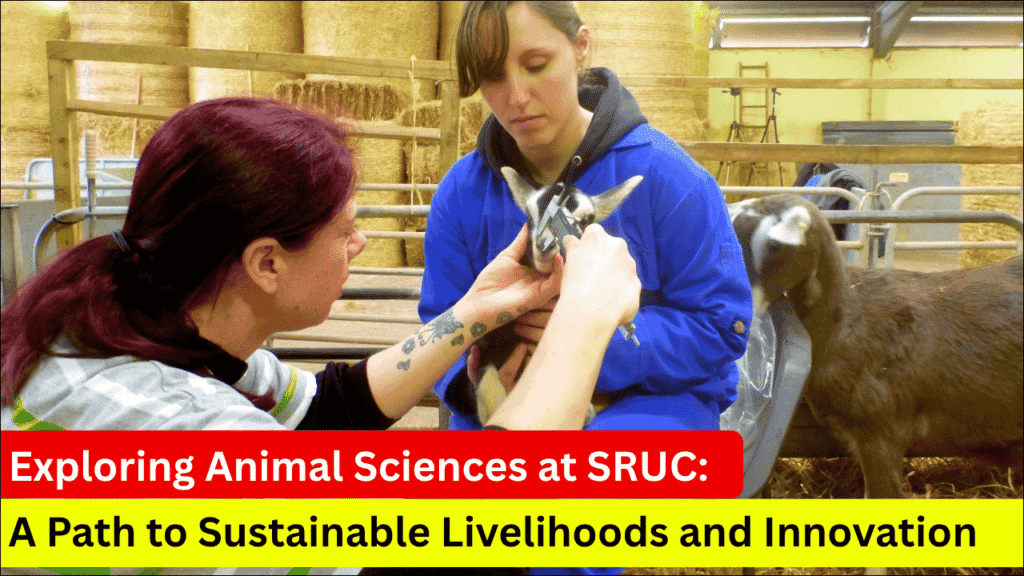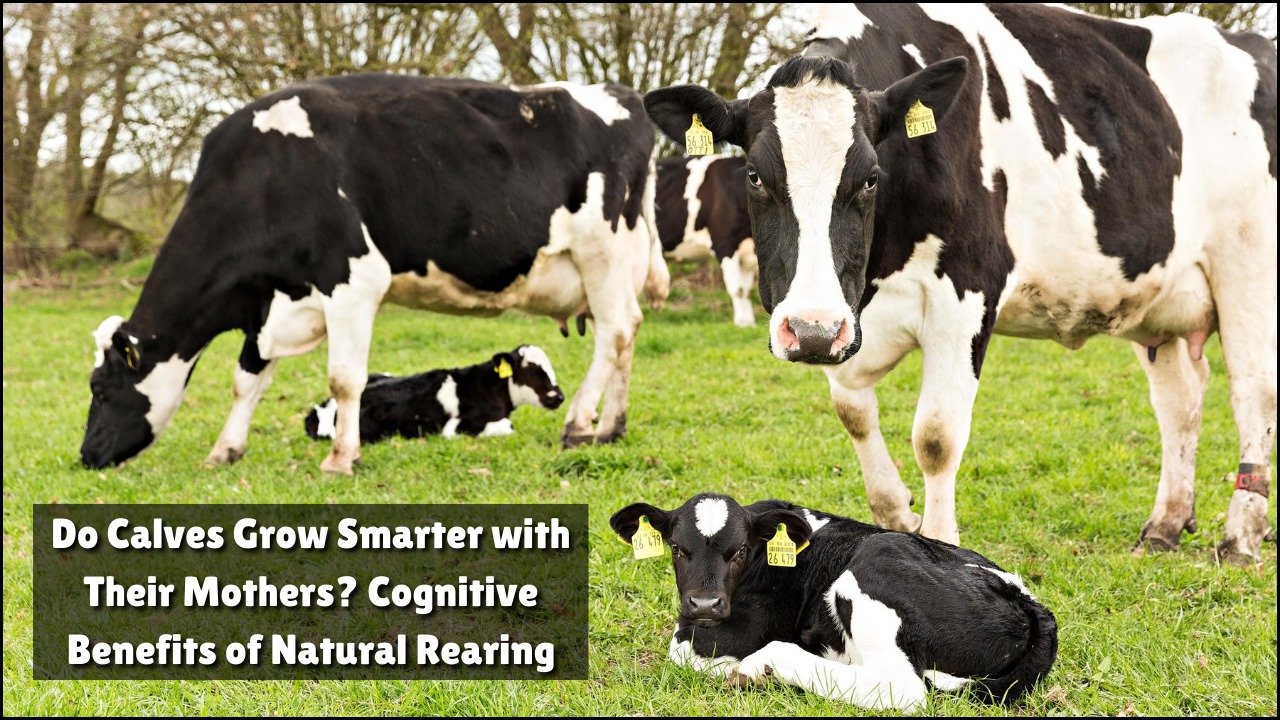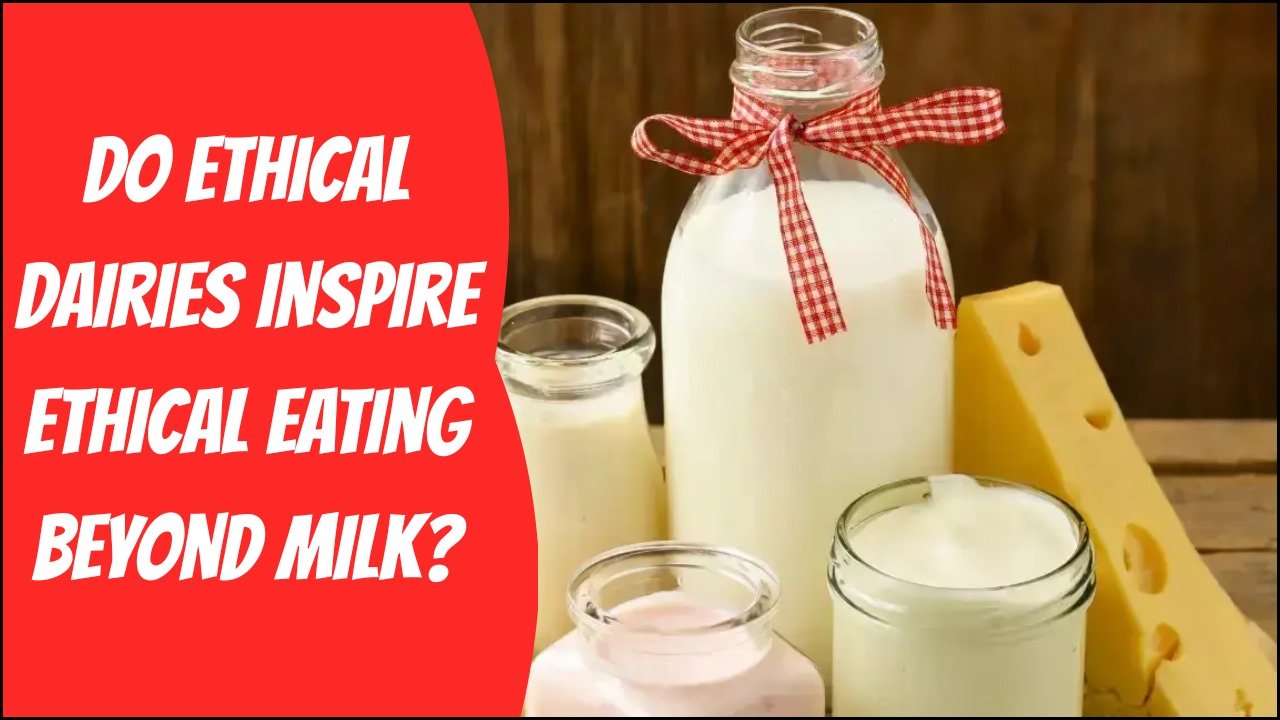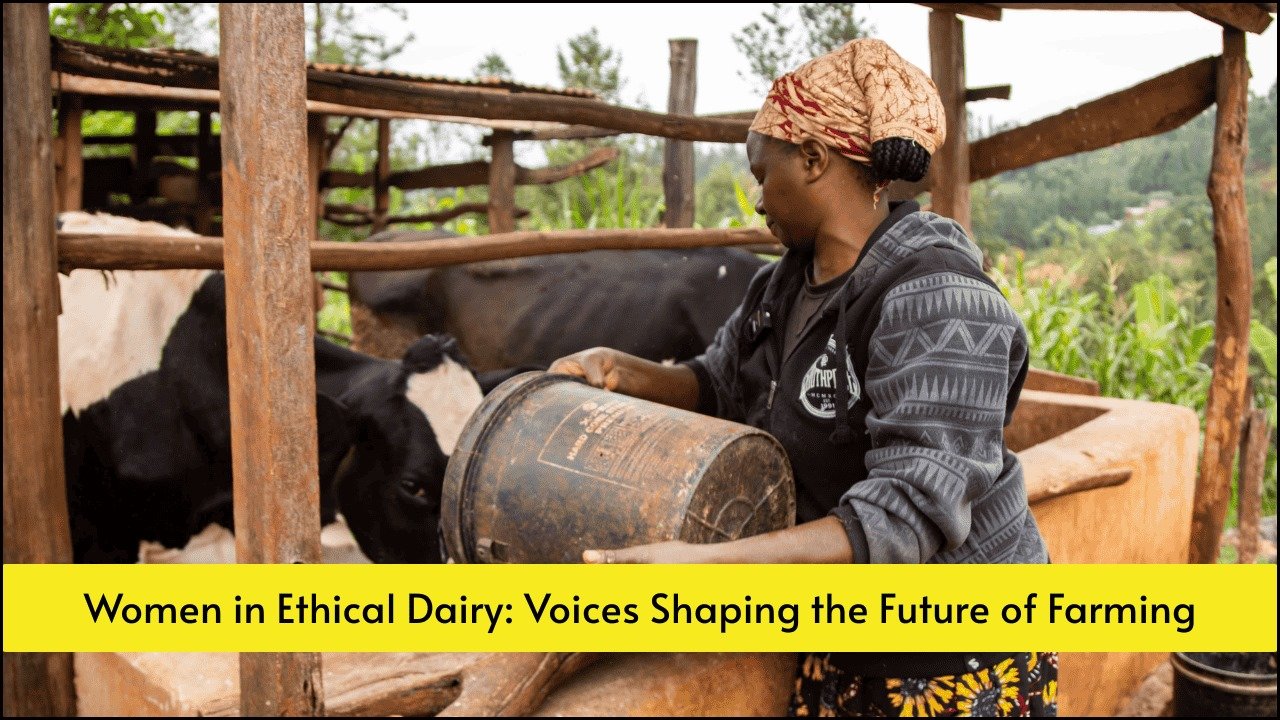
Animal sciences represent a field of critical importance in addressing the future needs of a rapidly expanding global population amid climate challenges. Animals have long been integral to human societies—not only as sources of food and clothing but also in labor, leisure, and companionship. As climate change, technological advancement, and sustainability demands reshape agriculture and food systems, animal scientists stand at the center of innovation. At Scotland’s Rural College (SRUC), the study of animal sciences equips learners with cutting-edge knowledge and practical skills, supporting advances in livestock welfare, biopharmaceuticals, and environmental sustainability.
Table of Contents
Importance of Animal Sciences in Modern Society
- Food Production: Animal agriculture provides essential proteins such as meat, milk, and eggs that are vital for human nutrition.
- Clothing and Materials: Wool, leather, and silk sourced from animals are widely used in fashion and industrial textiles.
- Workforce Contributions: Animals assist in farming, security, transport, and other manual labor across various rural economies.
- Companionship and Mental Health: Domestic pets contribute positively to emotional well-being, especially in urban settings.
- Recreational and Cultural Roles: Horse riding, racing, animal shows, and other cultural traditions rely on animal training and management.
SRUC’s Contribution to Animal Sciences
- Research Strength: SRUC houses one of Europe’s largest animal behaviour and welfare research teams focused on managed animals.
- Practical Innovation: From producing pharmaceuticals in eggs and milk to improving livestock conditions, SRUC-led projects offer real-world applications.
- Sustainability and Environment: The college supports land-based bioscience innovations that reduce ecological footprints and enhance agricultural resilience.
Key Focus Areas in Animal Sciences at SRUC
| Focus Area | Details |
|---|---|
| Animal Welfare & Behaviour | Research explores animal emotions, stress responses, and behavioural needs. |
| Livestock Production | Programs target efficiency, sustainability, and ethical practices. |
| Animal Nutrition | Studies emphasize feed formulation, metabolism, and digestive health. |
| Genetics and Breeding | Courses delve into selective breeding and genetic improvement strategies. |
| Animal Health & Disease | Training includes diagnostics, prevention, and biosecurity management. |
| Biopharmaceuticals | Research investigates producing medicines using animal-derived proteins. |
| Climate Adaptation | Innovations help animals adapt to changing environmental conditions. |
Career Prospects for Animal Science Graduates
Well-trained animal scientists are highly valued in various sectors across the UK and internationally. Graduates from SRUC’s animal science programs contribute to fields such as:
- Veterinary and Animal Health Services: Roles include laboratory diagnostics, animal pathology, and preventive medicine.
- Agricultural Consultancy: Graduates advise farmers on breeding, feeding, and disease control.
- Food Safety and Quality Assurance: Professionals oversee production standards and food chain traceability.
- Biotech and Pharmaceutical Industries: Animal scientists help develop products like vaccines and therapeutic proteins.
- Animal Welfare Organizations: Employment includes policy development, education, and rescue operations.
- Academic and Research Institutions: Further studies lead to research roles or teaching positions in animal biosciences.
Academic Pathways and Courses Offered by SRUC
| Course Title | Key Topics Covered | Study Level |
|---|---|---|
| BSc (Hons) in Animal Science | Physiology, breeding, nutrition, behaviour, and welfare | Undergraduate |
| MSc in Applied Animal Behaviour and Welfare | Behavioural science, ethics, welfare assessment, research methods | Postgraduate |
| HNC/HND in Animal Care | Practical animal husbandry, nutrition, and welfare | Further Education |
| Veterinary Support Programmes | Anatomy, clinical practices, and client communication | Professional/Vocational |
| Short Online Courses | Welfare law, equine behaviour, pet nutrition | CPD/Flexible Learning |
Virtual Experience and Learning Environment
- Online Exploration Tools: SRUC’s virtual platform showcases video tours, course insights, and real student testimonials.
- Hands-on Learning: Access to well-equipped animal units, laboratories, and research farms offers practical exposure.
- Collaborative Environment: Students engage in real-world projects with academic and industry experts.
Benefits of Studying Animal Sciences at SRUC
- Strong Research-Industry Link: Collaboration with bioscience companies strengthens practical outcomes and employment.
- Location Advantage: SRUC’s campuses in Scotland offer access to rich agricultural landscapes and cutting-edge research centers.
- Supportive Community: Academic mentors, career advisors, and peer networks create a nurturing learning environment.
- Sustainability Commitment: Programs reflect global goals like climate action, food security, and sustainable farming.
Notable Innovations at SRUC
| Innovation | Impact |
|---|---|
| Milk-based Pharmaceutical Production | Reduces production costs and enables novel drug delivery methods |
| Precision Livestock Farming | Uses sensors and AI to monitor health and behavior in real time |
| Welfare Assessment Protocols | Creates standardized tools to measure animal well-being objectively |
| Climate-Resilient Breeding Programs | Helps develop breeds suited to extreme temperatures and disease threats |
| Sustainable Feed Alternatives | Explores algae, insects, and by-products as replacements for traditional feed |
Looking Ahead
Animal sciences offer meaningful answers to pressing global challenges—food insecurity, climate change, and ethical animal management. By integrating hands-on training with research and innovation, SRUC prepares students to become leaders in sustainable agriculture and biosciences. As demands on animal production and welfare grow, skilled professionals trained in animal sciences will remain essential to advancing global health, environmental conservation, and economic development.





